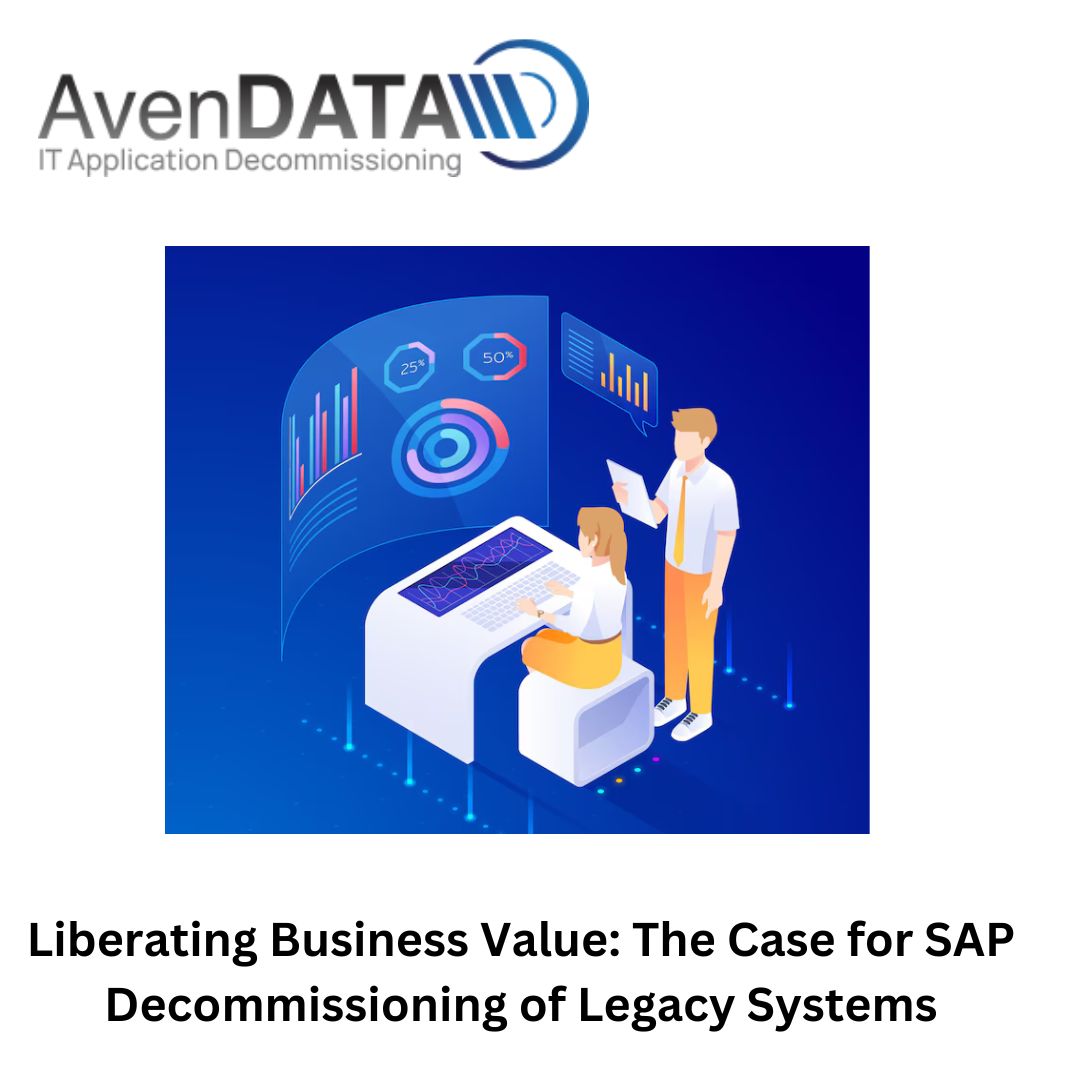Introduction:
In the ever-evolving landscape of enterprise technology, the weight of legacy systems can often hinder progress, innovation, and cost-effectiveness. These systems, once the backbone of operations, now stand as barriers to agility and efficiency. However, within this challenge lies an opportunity – the liberation of business value through SAP decommissioning. In this blog, we explore the compelling business case for bidding farewell to legacy systems and embracing the transformative power of SAP decommissioning.
Unraveling the Legacy Burden:
Legacy systems, though once revolutionary, have become shackles restraining modernization efforts. These aging infrastructures not only incur hefty maintenance costs but also impede adaptability to changing business needs. Cumbersome processes, outdated technology, and compliance risks further exacerbate the burden they impose on organizations. It's time to break free from the inertia of the past and pave the way for future growth.
The Promise of SAP Decommissioning:
Enter SAP decommissioning – a strategic approach to retire legacy systems while preserving valuable data assets. Unlike traditional methods that involve costly maintenance or risky migrations, SAP decommissioning offers a streamlined path to liberation. By extracting, consolidating, and archiving relevant data from legacy systems, organizations can declutter their IT landscapes and unlock significant business value.
The Business Case Unveiled:
Cost Savings: Maintenance and support costs associated with legacy systems can drain resources that could otherwise fuel innovation and growth. SAP decommissioning presents a cost-effective alternative, enabling organizations to redirect funds towards strategic initiatives.
Enhanced Efficiency: Simplifying the IT environment through decommissioning eliminates complexities, streamlines processes, and accelerates decision-making. This newfound agility empowers teams to focus on value-adding activities rather than wrestling with outdated technology.
Risk Mitigation: Legacy systems pose inherent risks, including security vulnerabilities and compliance challenges. By decommissioning these systems and consolidating data in a secure environment, organizations can mitigate risks and ensure regulatory compliance, safeguarding their reputation and operations.
Data-driven Insights: Legacy data, though often overlooked, holds valuable insights that can drive informed decision-making. Through SAP decommissioning, organizations can preserve historical data in a structured manner, enabling analysis and strategic planning based on a comprehensive view of the business landscape.
Scalability and Innovation: Shedding the constraints of legacy systems paves the way for scalability and innovation. With a modernized IT infrastructure, organizations can embrace emerging technologies, adapt to market changes swiftly, and stay ahead of the competition.
Conclusion:
Legacy systems may have served their purpose in the past, but their relevance in today's fast-paced digital age is waning. The business case for SAP decommissioning is clear – it offers a pathway to liberation from the burdens of legacy infrastructure while unlocking untapped value for organizations. By embracing decommissioning as a strategic imperative, businesses can chart a course towards efficiency, agility, and innovation, positioning themselves for success in the digital era. It's time to liberate business value and embark on a journey of transformation with SAP decommissioning.






Comments